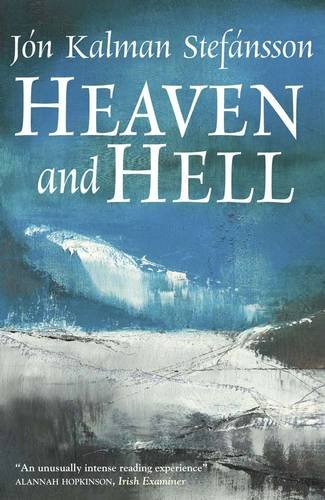(Himaríki og helvíti, 2007)
This is the first book in Jón Kalman’s famed trilogy of novels about 19th century Iceland, and although he had previously published several novels and collections of poetry, this was the book that secured him a place among the foremost Icelandic writers of today.
Set in the Westfjords at a time when the harsh realities of life revolved around work, food and sleep, the characters – the anonymous, young protagonist and the people he meets in his journeys – still manage to devote whatever energies they have left at the end of the day to more ethereal concerns, such as art, literature and love. The poetic lilt of the language that Jón Kalman applies in the trilogy takes some time getting used to. The narration addresses the characters and their worlds in a caring and personal manner: an all-seeing first-person plural that almost seems to speak on behalf of the nation itself. This makes the prose feel a little old fashioned at times but fits nicely with the setting itself.
In a similar vein, the characters might at first seem to fall within the realms of an archaic romantic tradition; “strong” men and women filled with hubris and lyricism. However, the attentive reader will soon discover complex, underlying moral themes that address the choices we make as humans; how we co-exist as people and make use of our brief lives.
